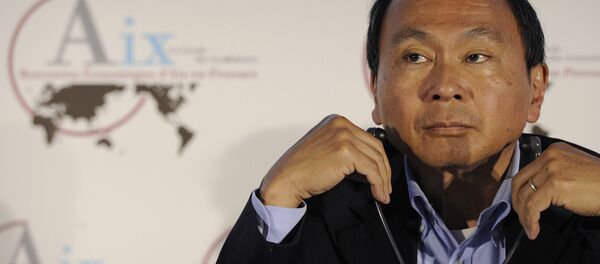The former neocon, who began calling himself a 'realistic Wilsonianist' in the aftermath of the US invasion of Iraq, explained that a number of US statutes on transparency, "passed decades ago in response to perceived government abuses…have [since] had a number of unfortunate consequences."
These include, according to Fukuyama, laws such as the 1972 Federal Advisory Committee Act, aimed at ensuring that public agency consultations with groups outside the government meet a number of 'onerous' criteria and are formally approved, and the 1976 Government in the Sunshine Act, aimed at ensuring that the deliberations of government agencies are open to the public.
According to the scholar, "these obligations put a serious damper on informal consultations with citizens, and make it difficult for officials to talk to one another…When the process [of deliberation] is open to public scrutiny, officials fear being hounded for a word taken out of context." As a result, "they resort to cumbersome methods of circumventing the regulations, such as having one-on-one discussions so as not to trigger a group rule, or having subordinates do all the serious work."
The scholar even went after C-SPAN's coverage of Congressional deliberations, noting that instead of "debating with colleagues," members of Congress now spend their time "addressing activist audiences in the media ether."
Ultimately, forgetting about the massive problems caused by the lack of transparency facing the US political system, from the never-ending scandals relating to mass surveillance, to the case of Citizens United, which has allowed shady business interests, lobbyists and foreign interests to pump billions of dollars into the US electoral process, Fukuyama boldly proclaimed that "national security aside, the [US] federal government's executive branch is" actually "probably one of the most transparent organizations on Earth. In his words, "no corporation, labor union, lobbying group or non-profit organization is subject to such scrutiny."
Calling for US legislators and officials to be given more space for deliberations, "just as families need to protect their privacy when debating their finances or how to deal with a wayward child," Fukuyama concluded his piece by noting that legislators shouldn't need to "[don] a straitjacket of rules specifying how they must talk to each other, and to citizens."




